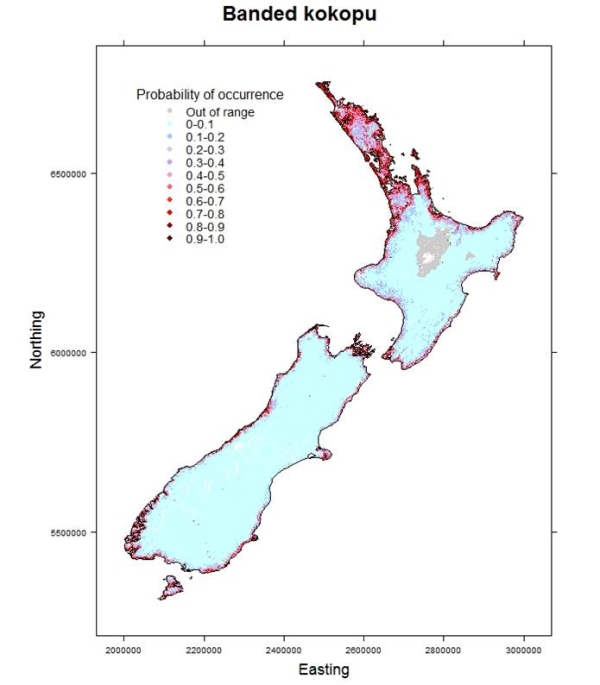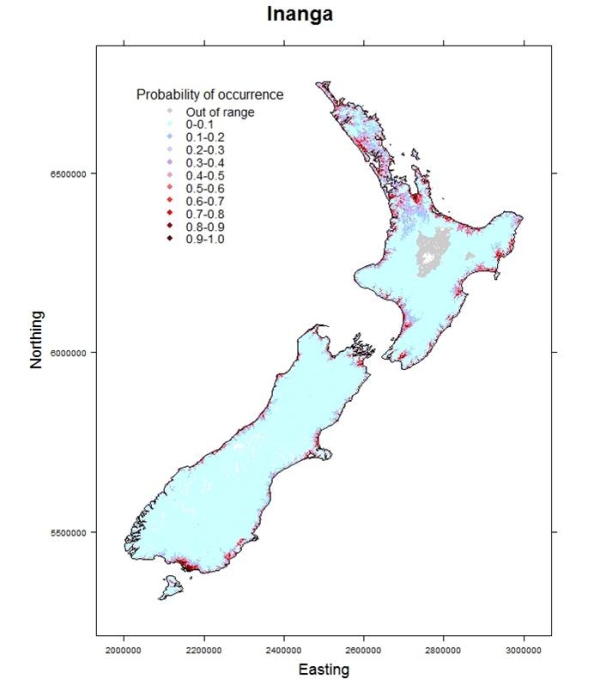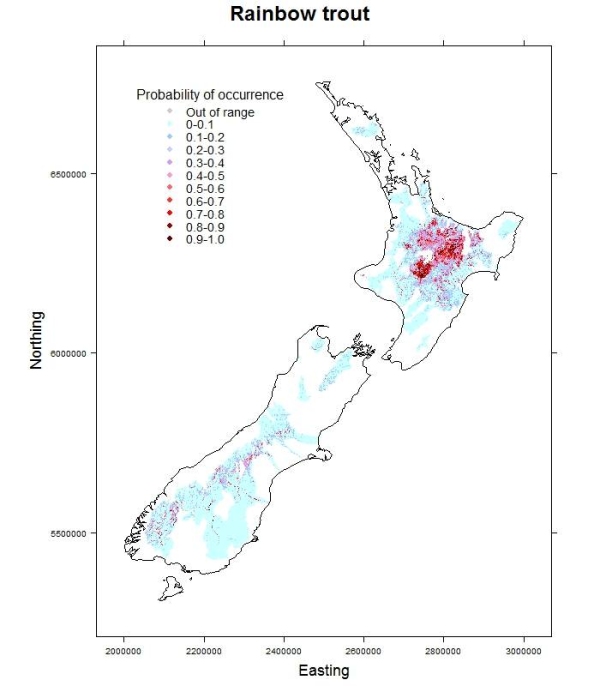Predicted distribution maps for the most sensitive species (i.e. banded kokopu, smelt, inanga, trout) are available on the right hand side.
Banded kokopu adults occur primarily in low-gradient, first-order streams that are well shaded. Firstly, locate the stream site on a New Zealand 1:50,000 topographical map. In general, banded kokopu inhabit small streams (less than 2 m wide), and tend to prefer the smallest ones (i.e. less than 1 m wide). Streams with catchments of 2–5 km2 can be expected to fit this category. Streams draining only 1–2 km2 will generally be too small and ephemeral, but this depends on regional differences in rainfall patterns. In high rainfall areas, a catchment of 1–2 km2 may well support some banded kokopu. Banded kokopu can occur in ephemeral streams, but only those where large pools of water are present and remain throughout summer months. The first task is therefore to identify whether first order streams that can be expected to contain adult banded kokopu occur above the site.
The second criterion for banded kokopu is tree cover. If a forest canopy (native or exotic) covers the first-order stream, or there is dense riparian tree cover alongside it, then banded kokopu could well be present. If there is no cover, banded kokopu will be very scarce if not absent. Examine the topographical map and/or aerial photos where available to determine whether the small, first-order streams above the site also have riparian tree cover. If not, then banded kokopu are unlikely to be present.
Where tree cover is present above the first-order streams, banded kokopu can be expected to be present but only in the lower-gradient stream reaches. They are generally scarce in the higher-gradient reaches of such streams, mainly because these contain few suitable pools. Examine the distances between the altitudinal contour lines and determine whether any low-gradient reaches (<1 in 10) of stream are present. If so, then banded kokopu can be expected to occur here. If not, then banded kokopu will be scarce if not absent altogether.



